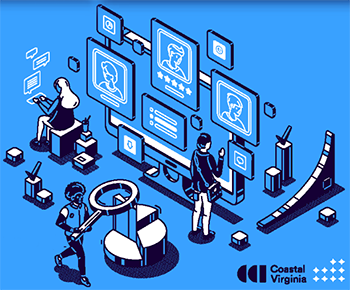Abstract
Throughout the relatively short history of artificial intelligence (AI), there has been a significant concern surrounding AI’s ability to incorporate and maintain certain characteristics which were not inherently modeled out in its coding. These behaviors stem from the prominent usage of neural network AI, which can inherit human biases from the input data it receives. This paper argues for two possible avenues to combat these biases. The first is to rethink the traditional framework for neural network projects and retool them to be usable by a Generative Adversarial Network (GAN). In a GAN’s zero-sum game, two network techniques can combat discriminatory beliefs or incorrect values in manners unlike traditional networks, while not necessitating a completely new algorithm for neural network systems already proven effective. GAN technology is one approach for helping to solve the bias issue but confronting the humans behind the AI is just as important. Incorporating humanistic techniques such as unconscious bias training and participatory design into AI development further promote equitable AI by fostering communication between others. AI biases are merely reflections of human biases in a technological form, and any “bad” output data stems from bad output humanity has generated from itself. There cannot be a perfectly unbiased AI model, as there are no perfectly unbiased humans, and the influences of economies, politics, and other vested interests ensure this to an even larger degree.
Faculty Advisor/Mentor
Iria Giuffrida
Document Type
Paper
Disciplines
Artificial Intelligence and Robotics
DOI
10.25776/htk2-2h94
Publication Date
2021
Upload File
wf_yes
Included in
Tackling AI Bias with GANs
Throughout the relatively short history of artificial intelligence (AI), there has been a significant concern surrounding AI’s ability to incorporate and maintain certain characteristics which were not inherently modeled out in its coding. These behaviors stem from the prominent usage of neural network AI, which can inherit human biases from the input data it receives. This paper argues for two possible avenues to combat these biases. The first is to rethink the traditional framework for neural network projects and retool them to be usable by a Generative Adversarial Network (GAN). In a GAN’s zero-sum game, two network techniques can combat discriminatory beliefs or incorrect values in manners unlike traditional networks, while not necessitating a completely new algorithm for neural network systems already proven effective. GAN technology is one approach for helping to solve the bias issue but confronting the humans behind the AI is just as important. Incorporating humanistic techniques such as unconscious bias training and participatory design into AI development further promote equitable AI by fostering communication between others. AI biases are merely reflections of human biases in a technological form, and any “bad” output data stems from bad output humanity has generated from itself. There cannot be a perfectly unbiased AI model, as there are no perfectly unbiased humans, and the influences of economies, politics, and other vested interests ensure this to an even larger degree.


